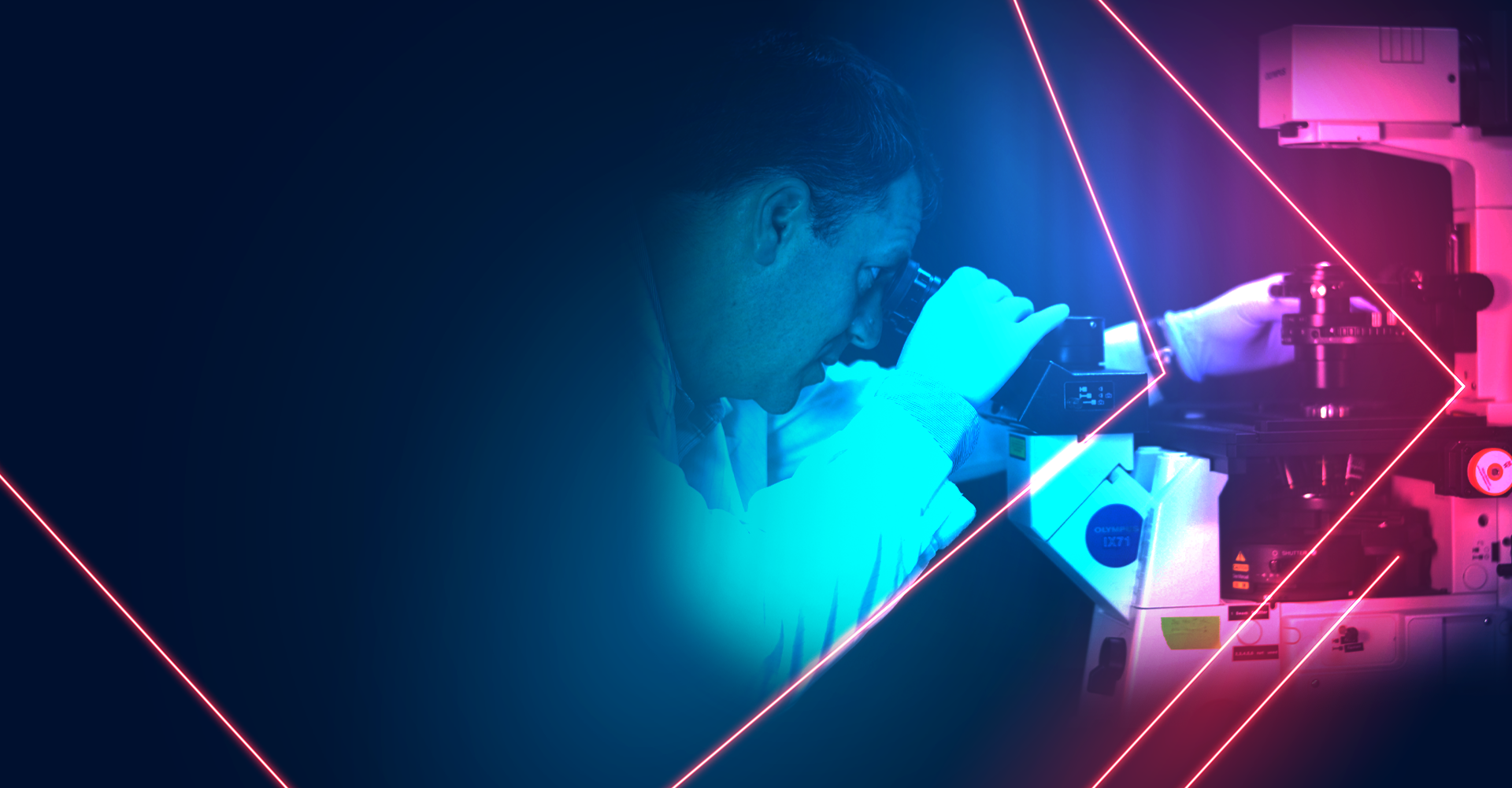Using a novel, high-tech piece of equipment that scatters light with lasers, Andrew Terentis, Ph.D, is unlocking mysteries about biological systems.
Called raman spectroscopy (RS), the technique allows scientists to identify and characterize chemical compounds based on light scattering by a sample. Terentis uses it for a range of research questions, from examining how small proteins can interact with cell membranes, called cellular uptake, or to identify cancerous cells on the skin. He leads FAU’s Raman Lab, and is an associate professor in the Charles E. Schmidt College of Science and a faculty fellow at the Institute for Human Health and Disease Intervention (I-Health).
For his work with skin cancer, for instance, Terentis uses this light scattering system on a hand-held device to diagnose skin cancer cells. When the skin is examined under a microscope, the RS system will give off a different signal depending on the level and type of skin cancer that is in the body. The results will aid in the treatment of the disease, offering a different method for how skin cancers are diagnosed.
“The results so far from the work we are doing with developing raman spectroscopy as a diagnostic for skin cancer, continues to encourage me and my team,” said Terentis, adding that the team is also part of I-Health’s cancer research group. “We have promising work to continue, one that includes laying the groundwork for future partnerships between institutions like University of Cyprus.”
That partnership is part of his work as a 2020-2021 Fulbright Scholar. The Fulbright Program is the flagship international educational exchange program sponsored by the U.S. government, designed to forge lasting connections between people from different countries, counter misunderstandings, and help people and nations work together toward common goals.

Terentis chose Cyprus, a small island country in the Eastern Mediterranean, partly because that’s where his father was from, but also because the University of Cyprus will collaborate with other researchers using RS.
As a Fulbright Scholar, Terentis will conduct research and teach a course in raman spectroscopy at the University of Cyprus, as part of a specific project to study how cell-penetrating peptides interact with cell membranes.
“I am honored to achieve this scholarship and to be named with many other esteemed scholars and leaders in the field. It’s an inspiration for me to continue to advance my research further,” Terentis said. “Working in the lab in Cyprus I hope to gain unprecedented results on what these proteins can actually do and how they can change their structure at the surface of cells.” ◆
